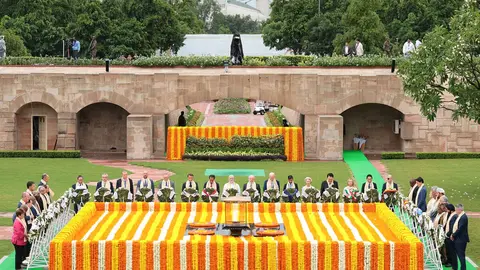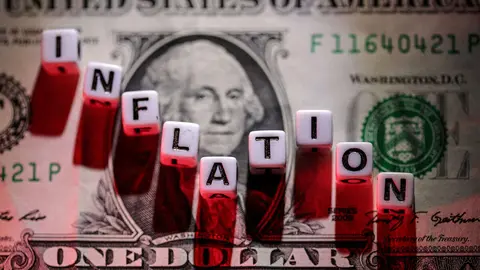A dialogue of the deaf

The United Nations General Assembly is a dialogue of the deaf. The deterioration of credibility in the institutions that emerged at the end of the Second World War is more and more noticeable every year, so the UN does not escape the passage of time... it is ageing, overtaken by a harsh and changing reality with a bomb of cross-cutting challenges that, when combined together, cause real human dramas.
Today, a country as large as Ukraine is still resisting a barbaric invasion that is now a year and a half old, and no one has managed to remove the Russian troops and return them to their barracks in the Russian Federation.
No one: not the UN, not tough sanctions, not an arrest warrant from the International Criminal Court against the Russian dictator and invader, Vladimir Putin.
The world has witnessed the invasion, and yet a group of countries choose not to condemn Russia, not to take the right side of life, not to do the politically correct thing by supporting the aggressor. This is very serious because it represents not only the limited room for manoeuvre of a weakened, questioned and battered UN that is incapable of containing an invasion.
This precedent is very serious because it opens the door for the rest of the century to repeat as many invasions as we can imagine if there is a powerful, super-armed and ambitious neighbour in front of us.
As climate change intensifies, droughts will be the perfect pretext to take over the waterways, rivers, dams and lakes of the neighbouring country. And who is going to stop it? Nobody, because there is no multinational institution powerful enough to do so... there will be other invasions, this time motivated by drought and water.
The world is coming to this 78th General Assembly wide open: it is not just the Russian invasion of Ukraine, there are other civil conflicts which, according to the UN, total forty active outbreaks globally, which add an enormous component of instability to the respective regions where they develop, with war, terrorism, the power of mafias controlling territories or even drug trafficking becoming destroyers of human rights and major expellers of the inhabitants who flee in search of refuge in neighbouring countries or even other continents.
So far this year, the situation in Africa has become especially delicate as the New York Times reports, Africa's coup belt stretches across the continent: "A six-country line crosses 3,500 miles, coast to coast, that has become the longest corridor of military rule on earth".
Recently, Niger suffered a military coup, extending the presence of military juntas from Guinea, Mali to Sudan that seized power by force rather than through elections. The same situation in Burkina Faso last year.
"The Sahel has overtaken the Middle East and South Asia to become the global epicentre of jihadist violence, accounting for 43 per cent of the 6,701 deaths in 2022, up from 1 per cent in 2007," according to the Global Terrorism Index, an annual study by the Institute for Economics and Peace.
According to the New York Times, African countries have experienced 98 successful coups since 1952, citing a recent UN report on coups in Africa.
But there are also internal conflicts in other countries that struggle with every effort to maintain control of the state and prevent it from falling into the hands of mafias. Before the UN Assembly, President Joe Biden asked the Security Council to authorise sending an international force to Haiti to help police fight gangs.
On the subject
UN Secretary-General António Guterres said the world has opened "the gates of hell" as climate change intensifies, and criticised the inaction of several governments on the issue.
Guterres convened a Climate Summit of sorts to take advantage of the call to attend the 78th UN General Assembly in New York, but none of the leaders from China, the US, India, Russia, the UK or France were present.
The US, which emits the most carbon dioxide into the atmosphere, sent John Kerry to the summit even though President Joe Biden was in town; the 32 leaders who did attend account for only 11% of the world's carbon dioxide pollution. China and the United States emit more carbon dioxide than this group of countries. I say it again: the UN does not unite for peace, nor for climate change...



